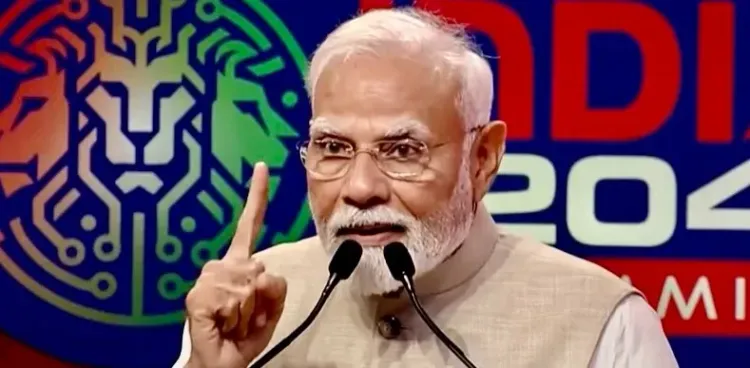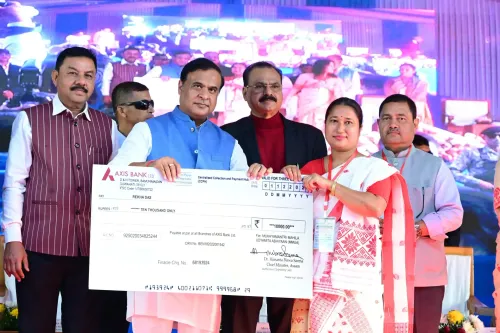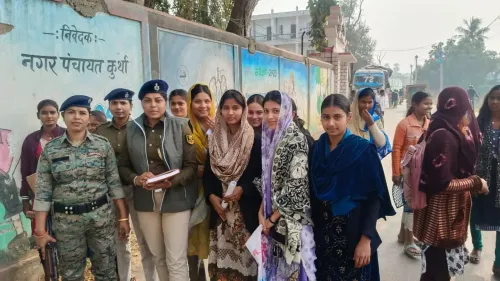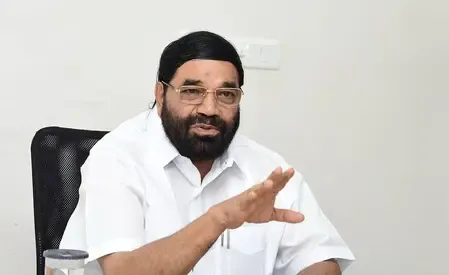Have India and the UK Finalized Their Free Trade Deal?

Synopsis
Key Takeaways
- India-UK Free Trade Agreement finalized
- Expected trade boost of £25.5 billion
- Reduction of tariffs on 90% of goods
- Benefits for Micro, Small, and Medium Enterprises
- Strengthening of bilateral relations
New Delhi, May 6 (NationPress) In a significant telephone conversation on Tuesday, Prime Minister Narendra Modi and UK Prime Minister Keir Starmer celebrated the successful completion of the ambitious and mutually beneficial India-UK Free Trade Agreement, along with the Double Contribution Convention.
While addressing attendees at the India @2047 event, PM Modi confirmed that the trade pact between India and the UK has been officially signed.
“Today signifies a historic milestone for India. Just moments ago, I communicated with the Prime Minister of the UK, and I am thrilled to declare that the India-UK pre-trade agreement has been finalized,” PM Modi stated.
This landmark trade agreement, the Prime Minister noted, is poised to initiate a new era of economic growth for both nations, delivering a substantial boost to India's economy and generating new opportunities for Micro, Small, and Medium Enterprises (MSMEs).
Furthermore, India has successfully forged trade agreements with numerous other countries, further reinforcing its standing as a dynamic and thriving global trade and commerce hub.
“Making courageous decisions and establishing ambitious goals is imperative. The advancement of our nation must always be our highest priority, ensuring that every step we take leads to greater prosperity and enduring benefits for our populace,” PM Modi remarked.
Both leaders praised the agreement as a historic accomplishment in the evolving bilateral Comprehensive Strategic Partnership, highlighting its potential to enhance trade, investment, innovation, and job creation in both economies.
They concurred that this groundbreaking arrangement between two of the world’s largest and most vibrant markets would unveil new opportunities for businesses, fortify economic ties, and enrich interpersonal connections.
Prime Minister Starmer, in an official statement, reiterated that strengthening alliances and removing trade barriers with global economies aligns with the UK’s ‘Plan for Change’, aimed at fostering a more robust and resilient economic future.
The leaders emphasized the crucial role of expanding trade and commercial relations in deepening the already strong and multifaceted India-UK partnership. They expressed optimism that the newly established Free Trade Agreement - balanced, fair, and forward-looking - would substantially enhance bilateral trade, create new job prospects, elevate living standards, and contribute to the overall well-being of citizens in both nations, as stated.
Additionally, the agreement is anticipated to stimulate collaborative innovation between India and the UK, paving the way for the joint development of goods and services tailored for international markets.
This agreement reinforces the solid foundations of the India-UK Comprehensive Strategic Partnership, setting the stage for a new era of economic collaboration and prosperity.
The deal arrives at a crucial moment in global trade, amid significant upheaval in economic policies initiated by former US President Donald Trump. His abrupt imposition - and subsequent suspension - of high tariffs on numerous nations introduced widespread uncertainty, which analysts suggest may dampen investment prospects and slow economic growth worldwide.
After three years of rigorous negotiations, the British government estimates that the agreement will elevate bilateral trade by £25.5 billion ($34 billion).
In the lead-up to the pact’s finalization, Britain’s Business and Trade Secretary Jonathan Reynolds and India’s Commerce Minister Piyush Goyal engaged in extensive discussions last week to resolve certain issues.
Trade between India and the UK - two of the world’s fastest-growing economies - remains a crucial driver of their relations.
According to British government data, last year’s trade in goods and services between the two nations reached $57 billion. A key element of the agreement sees India reducing tariffs on 90 percent of goods, with most expected to become tariff-free within a decade.
If government insiders are to be believed, duties on certain goods will be significantly reduced, such as the current 100 percent tariff on cars, which will be lowered to 10 percent. Similarly, tariffs on liquor, food products, apparel, and footwear will also see reductions.
The signing of the trade agreement signifies a major shift in global economic dynamics, as more nations seek to strengthen their alliances with India.










